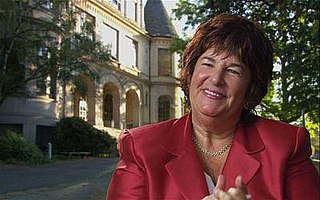A Quote by Susan Griffin
I think we actually punish children out of their relationship with their bodies... we categorically separate mind and body and emotion and intellect.
Related Quotes
Ninety percent of our lives is governed by emotion. Our brains merely register and act upon what is telegraphed to them by our bodily experience. Intellect is to emotion as our clothes are to our bodies; we could not very well have civilized life without clothes, but we would be in a poor way if we had only clothes without bodies.
There is a strange fact about the human mind, a fact that differentiates the mind sharply from the body. The body is limited in ways that the mind is not. One sign of this is that the body does not continue indefinitely to grow in strength and develop in skill and grace. By the time most people are thirty years old, their bodies are as good as they will ever be; in fact, many persons' bodies have begun to deteriorate by that time. But there is no limit to the amount of growth and development that the mind can sustain. The mind does not stop growing at any particular age.
Realizing that our minds control our bodies while our bodies reflect our minds amounts to understanding the most fundamental aspects of ourselves. It further equals a comprehension of the relationship between our "tools." And since the mind and body are interrelated, this understanding makes it easier to see why coordinating them is a practical way of using these tools to greatest effect-a way of using the mind and body to live our lives as art.
To invent a story, or admirably and thoroughly tell any part of a story, it is necessary to grasp the entire mind of every personage concerned in it, and know precisely how they would be affected by what happens; which to do requires a colossal intellect: but to describe a separate emotion delicately, it is only needed that one should feel it oneself; and thousands of people are capable of feeling this or that noble emotion, for one who is able to enter into all the feelings of someone sitting on the other side of the table.
The essences of the Gods never came into existence (for that which always is never comes into existence; and that exists for ever which possesses primary force and by nature suffers nothing): neither do they consist of bodies; for even in bodies the powers are incorporeal. Neither are they contained by space; for that is a property of bodies. Neither are they separate from the first cause nor from one another, just as thoughts are not separate from mind nor acts of knowledge from the soul.
By means of personal experimentation and observation, we can discover certain simple and universal truths. The mind moves the body, and the body follows the mind. Logically then, negative thought patterns harm not only the mind but also the body. What we actually do builds up to affect the subconscious mind and in turn affects the conscious mind and all reactions.
We don't always possess faith in the sense of having a clear embodiment of something to hang on to. The relationship between the intellect and faith is a very curious one. Sometimes the intellect can point us to faith, sometimes the intellect can stand in the way of faith. Sometimes, as St John of the Cross points out, we have to darken or blind the intellect in order to have faith.





































